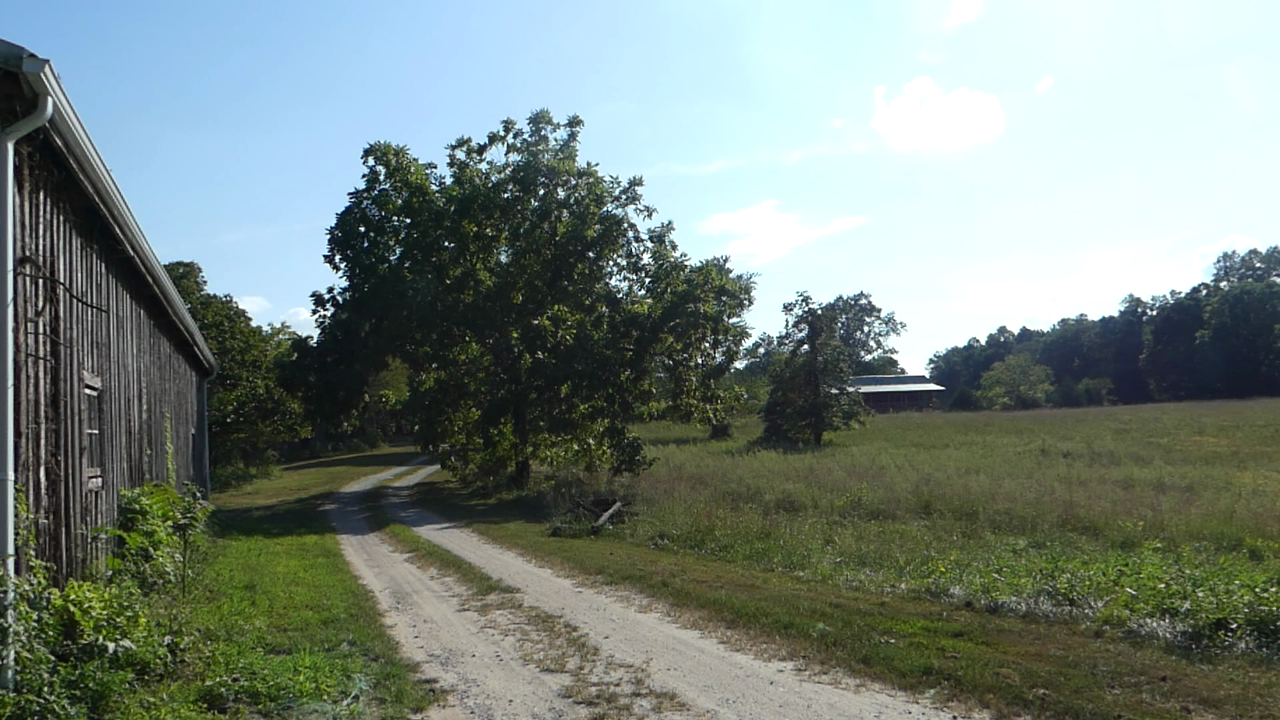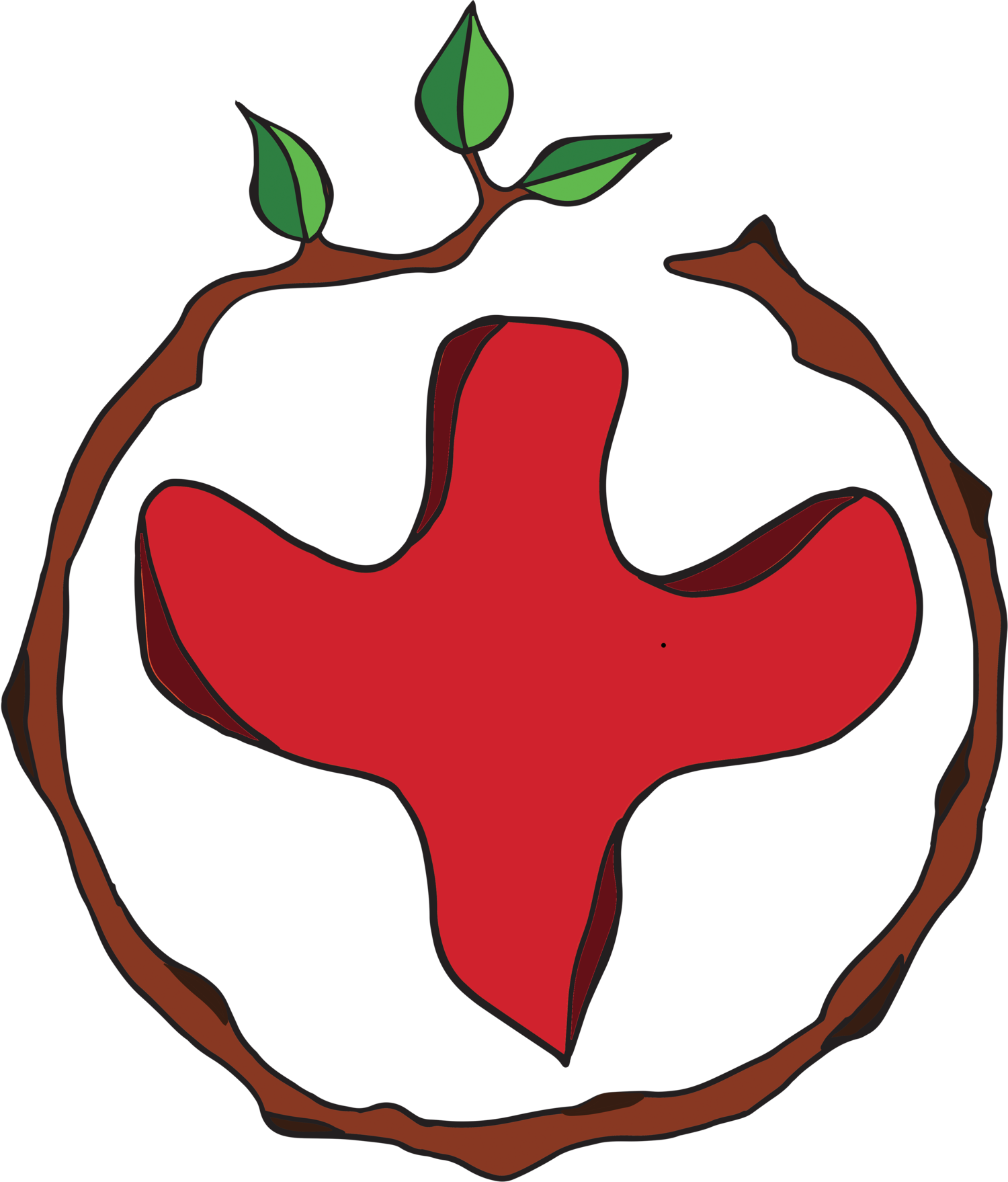
Community Structure
At the core, Community of Peace is a monastic Christian community. Br. Stefan is the Abbot and leader of this community. He has many years of experience living in monastic communities around the world. His experiences at the Taizé community in France are a strong influence on what he is creating with us all here.More than just a set of religious rules, a monastic community is a way of life that is vibrant, peaceful, joyful, and loving. It is primarily based in following the teachings of Jesus on how to live happily and peacefully together in love, and to walk the path of our inner longing to know God better. It is about developing a rhythm of daily life that practically follows and strengthens these goals. Centuries of monastic traditions have experimented with and developed solid methods; based on experience, Br. Stefan works to blend the best of these with modern living in our community.Levels of Participation
I. Vowed monks (all genders) - Core members who are fully committed to the community for life and who take vows, including a vow of celibacy, to fully and faithfully serve God through this monastic community’s purpose to promote peace and justice in the world. This is the deepest level of commitment to the monastic tradition. Those who are interested will talk with Br. Stefan about these deeper levels of commitment. This is intended to be a relationship of lifelong mutual support.
II. Vowed residents - Members committed to permanent residency within the community who vow to support the vision and the mission (outreach) of the community and to live their lives in interaction with all others in a Christ-like manner. They may not want to commit to the vows of a monk in the community. This is intended to be a relationship of lifelong mutual support.
III. Interns - Those who are pursuing spiritual growth for a period of time, up to a year. They currently include International Exchange programs, Workaway, and WWOOF programs, as well as individually made arrangements. Interns are expected to heartily join in the shape and rhythm of our days, including our practices of prayer and community living as generated by our monastic core, and to commit to our community vision and purpose for as long as they are in residence. They are included as equal members of the community while here, participating in the house meetings which help bond our community together.
IV. Visitors - A visitor may be any person seeking to come to prayer, spend time in fellowship, or come on retreat. They will understand and respect that we are deeply spiritually oriented and that our daily rhythm is important to us. Visitors are invited to join us at prayer, work, and/or meals, whether visiting for an hour, a day or making a month-long retreat. Participation in Sung Prayer is encouraged, but not strictly required, for guests and visitors; we do ask that Silence is observed by visitors during the designated Silence hours. If the only time a visitor can attend is during our Silent time, the Community may voluntarily suspend Silence so that the visitor may ask questions and have dialogue with us. For a longer stay, please talk with the Abbot, Br. Stefan, in person to arrange a visit.
Good to know - We do not require any particular religious or spiritual alignment, or any defined belief in God at all, by those who wish to come here. A desire to share in happy, joyful living, and/or to discover your own experience of Something Greater in life, is all that is requested for visitors. We are a Christ-centered monastery and we conduct our prayer times in a Christian monastic tradition; however, we do so in a refreshingly unique way. We attempt to bring the Jesus of the Gospels alive and relevant to the way many people live today.
Visiting may be for a day, weekend, week, or up to one month. Personal discussion during visits will determine the possibility of a longer visit. Each person’s situation is determined individually.
We are looking forward to your visit, and can’t wait to tell you in person: Welcome Home!
Community Governing
Our monastic community is led by our Abbot, Br. Stefan. In general, we use discussion with consensus, but there is a decision-making hierarchy. Non-violent communication is essential to our community in all discussions and decisions.
For any topic or issue, there is a general discussion with the possibility of group consensus. This is open to all members and intern visitors. If consensus cannot be reached by all, the issue is brought to the Council, made of the permanent vowed monks and residents. If the Council reaches a consensus, then that is the ruling for the group; if the Council cannot reach consensus, the Abbot makes the final decision for a ruling. The Abbot participates in the consensus for all levels of discussion.
Our Daily Routine
Monastic living creates a peaceful life. An established rhythm for the day frees both the spirit and time itself. The structured segments of the day are like a slow, deep drum beat. We know what will be happening on each beat, so we work when we work, and then set aside all thoughts of work when it is time for the next beat. The mind is not plagued with conflicting desires of what to do or how much to do; it is peacefully measured out. There is space between beats that is fully free for the individual to use as they desire for personal interests.
8:00 am - Morning Prayer
9:00 am - Breakfast / Morning meeting & House Meeting
10:00 am - 12:00 pm - Morning work time
12:00 pm - 3:00 pm - Silence in Sophia House
1:00 pm - Midday Prayer
2:00 pm - 4:00 pm - Afternoon work time
6:00 pm - Community Supper
7:00 pm - Evening prayer
10:00 pm - 8:00 am - Silence in Sophia House
Prayer - We practice sung Prayer three times a day, with Mondays reserved for evening prayer only. Each 45-minute session includes song, silence, sacred reading, and more song. Morning prayer is at 8:00 AM, Midday prayer is at 1:00 PM, and Evening prayer is at 7:00 PM. Visitors are asked to respect these Prayer times and maintain silence in the community house during the Silence times. Attendance at prayer is optional for visitors, but we encourage them to join us in this meaningful experience. It is required for most long-term residents to attend Prayer to the extent possible and agreed upon, but often becomes a deep desire of the heart.
Morning Meeting - Every morning at 9:00 AM, we sit together at the dining table and talk about the work needs of the day and everything else that is happening. Many choose to eat their breakfast during this informal meeting time.
Work - Every resident or long-term visitor participates in work or service during their stay. Contributing to the needs of the community through work strengthens the connection and bond between all in the community. 20 hours of service per week is specified, typically completed as 4 hours of work a day for the five weekdays. Many people work 2 hours in the morning following Morning prayer, and another 2 hours in the afternoon following Mid-day prayer. House meetings are considered service time, but prayer time and community meal times (i.e. eating together at the dining table) are not. Service may consist of any of a variety of tasks the community needs done: administration, outdoor work, cleaning Sophia House, cooking the evening meal, and grocery shopping are just a few examples. We attempt to find a good fit between people’s likes and abilities and the needs of the community.
Lunch - We do not have a specific time where we eat lunch together. Between prayer and work, everyone can decide for themself when and what they want to eat. We have a community kitchen and pantry which we all use. You can take whatever you want as long as it is not labeled with another person’s name.
House Meetings - Every week on Tuesdays, we have longer house meeting in place of the regular morning meeting. Everyone who is living at the community attends these, and visitors are allowed to join too. The meetings are conducted by the Abbott, Br. Stefan, who is always present. These meetings serve a variety of purposes and are designed to strengthen the web of our shared community life. We share personal things we may be dealing with, report on the progress of our work projects, and deliberate on problems or issues that arise for the community.
We also talk about different questions and issues concerning the whole community. Most of the problems can directly be solved, but sometime we do not agree, and for that case we have a decision making process:
Anyone here can share ideas at a house meeting.
We attempt to move toward consensus or a mutually acceptable agreement.
A Council of fully and permanently invested members in the community may further discuss the issue if necessary.
If an agreeable solution is not reached in a timely manner by consensus of the members or the Council, the Abbot will make a final decision as he believes best meets the needs of the community.
Community Supper - Dinner is eaten daily at 6:00 pm. All those present are expected to share supper with the community. It is a core part of being in community. If occasional needs require someone to be absent, they should inform the community so we are not waiting for them. Each person present for a week or more will be asked to prepare a meal on a rotation schedule; meal preparation is part of their service time and counts as work. Cleanup after dinner is done by all those who did not cook that day. Saturday is traditionally pizza day and Sunday is “leftovers” day.
We attempt to prepare food to meet the requirements and needs of everyone. Our basic diet is omnivore, with consideration allowed for food allergies. Strong preferences, and life style choices are accommodated to the extent we are able.
Silence Times - Each night from 10:00 PM until 8:00 AM the following morning, Silence is observed inside Sophia House*. This includes within the bedrooms/sleeping quarters; the walls between rooms here are very thin, so we respect that some of us enjoy this sustained period of Silence each night. If you must talk with another, whether in person or on the phone, please leave the building and take the conversation outside far enough away not to be heard. We ask that you set your phone to silent or vibrate, and utilize headphones if you want to listen to music/watch something online during Silence (and even outside of Silence).
Additionally, we hold Silence in Sophia House every day from 12 pm to 3 pm. We will gather at 1:00 PM for Sung Prayer, but otherwise, the same standards as the overnight Silence are in place: please refrain from talking, taking phone calls, or listening to music/videos without headphones inside Sophia House during this time, and be mindful of holding Silence for your fellow community members.
Friday is a special day of full Silence in Sophia House, beginning at 10:00 PM Thursday and extending to 8:00 AM Saturday. This day is meant for deep reflection, introspection, meditation, and prayer. We still observe Prayer times and community dinner in Sophia House on this day.
*Note: Silence is only observed inside Sophia House. All other places on our facility are not subject to Silence times; for example, if you and another member are working in the garden at 12:00 PM, you do not have to stop dialogue with each other until entering Sophia House for Midday prayer at 1:00 PM, and could resume speaking after leaving Sophia House following prayer time.
